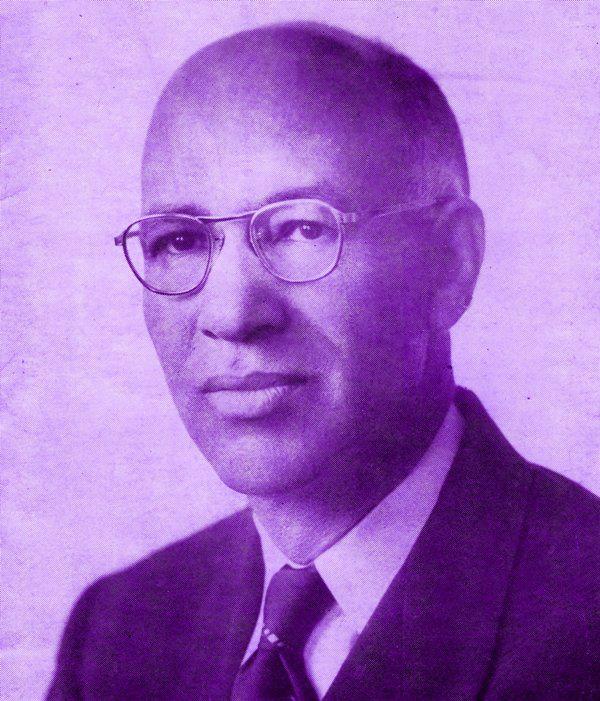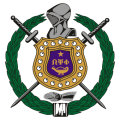Chapter History
The Premiere Chapter of the Diamond State
A Brief History Of Psi Zeta
Chapter 1
This is the history of the Psi Zeta chapter of Omega Psi Phi, located at the University of Delaware.
The Psi Zeta chapter of Omega Psi Phi was the first Black greek organization on the University of Delaware campus.The chapter was offically chartered at the University on April 18,1974, however the series of events leading to the establishment of Psi Zeta go back much earlier.
Some portions of the story of Psi Zeta’s beginning could be best understood if a brief historical context is given. The year was 1967. Historically, 1967 was a year of turmoil throughout the country. The Vietnam War, an unpopular war, was ending. Brown vs. Topeka Board of Education was 13 years old, but integration was not fully implemented nationwide. Many schools, especially in the South, still operated within a segregated system. At the University of Delaware, black students had been legally allowed to attend since 1950.5 In actually, Delaware still had a segregationist attitude. A concept popularly known as Freedom Of Choice was still in effect. As with most other aspects of the process of demantling segregation, the procedure of truly integrating the University of Delaware was deliberately planned and implimented. To further complicate the matter, racial relations were uneasy and increasingly tense in Wilmington ( the closest major metropolitan area ).6.
The University president was E.A. Trabant. It during the Trabant administration that the University of Delaware transitioned from a “white school” to a modern, open enrollment institution. Much of this change occured during the late 1960’s to the mid 1970’s. One of the first steps was the formation of the Upward Bound and College Try programs at the university. These two programs were designed to target prospective students and prepare them for attending the University of Delaware. Richard ” Dickie” Wilson was hired to spearhead these projects. In many respects, he was unofficially regarded as “the Dean of Black Students”. At this point, there were only a few hundred Blacks on what was then a campus of over 25,000 students.
It was within this historical framework that, in 1967, Wayne Crosse attempted to recuit other men to pledge Omega Psi Phi. It was perhaps assumed that Dickie Wilson would approve since he was an Omega pledgee at Beta chapter, located at Lincoln University.( He did not complete the process). This was not the case. When news of this activity reached Dickie Wilson, he was very much against the idea. He felt that any Black organization should include women. His vision became the formation of the Black Student Union. In 1969, Wayne left the University and joined the Air Force.
The formation of an Omega chapter at the University of Delaware was still a goal of the fraternity when Wayne returned from the Air Force in 1973. By then, a few things had changed. Nu Upsilon, the graduate chapter in Wilmington, had started the process by pledging the Fantastic Four. These were Wesley Wilson, Sanford Long, Stan Goldsberry and Richard Byrd. Wesley Wilson and Sanford Long had already graduated from Delaware State and Hampton University, respectively.. Stan Goldsberry and Richard Byrd were still undergraduates at the university. There were two more Omega men on campus. Both were in graduate school. One was Emery Graham, who pledged at Lincoln. He was studing in the college of Urban and Regional Planning. The other was Milford “Doc” Caudwell, the son of a dean at Delaware State College. He pledged at Delaware State and graduated from there. Now he was attending the University of Delaware.
Wayne Crosse was still interested in pledging. He approached Stan and Richard about the possibility. The national body of Omega Psi Phi clearly states the rules concerning pledging. Nu Upsilon was the chapter in charge. The Dean of Pledges was Lee Washington. The position of Neophyte Commandant, another important position, was given to Emery Graham. Thus, a line known as the Hounders was created. These were all undergraduates. Initially, there were 13 pledgees. Five remained. They were Larry McNair, Reginald Blakey, Wayne Crosse, Dean Jennings, and Victor Orija.
The bylaws of the national body determines the process of creating a chapter. Eight brothers are required to begin the process of creating a chapter. All eight must be students at the instution in question. Stan Goldsberry and Richard Byrd, two of the Fantastic Four, were still students on campus. Milford Caudwell and Emery Graham were grad students, so they could be counted as the chartering line. This bought the total to four. The remaining four were from the Hounders line. They were Larry McNair, Reginald Blakey, Wayne Crosse, and Victor Orija. Dean Jennings was a student at Millersville State College and could not be counted in the formation of Psi Zeta. The requirement concerning the number of brothers was fullfilled, enabling them to apply for a charter. Dean Jennings went on to charter the chapter at Millersville State from which our former Grand Keeper Of Records and Seal, Terrell Parris was pledged.
There was one more hurdle to deal with. The formation of the chapter required the University’s approval and Dick Wilson was still against the idea. It was his belief that pledging would only cause grades to fail and lead to the students flunking out. The prospect of Black students flunking out held even more significance due to the historical context. There were still some attitudes that claimed Black students were unable to succeed at the University of Delaware. They should go to an “easier” school like Delaware State.
Arnold Cephas and Wayne Crosse had a meeting with Walt Ciecko, who was Director of Residence Life. They pointed out to him that the Omega brother’s GPAs were higher than the rest of the Black students. This refuted Dick Wilson’s contention. Walt Ciecko sided with the students and approved the charter application to the Omega International Headquarters.
Bro. James Grant 2nd District representative approved and Psi Zeta Chapter was chartered.
It should be pointed out that coincidentally, there was a line of five brothers pledging at Beta chapter at the same time as the Hounders. They had many educational sessions together which resulted in a bond between the two chapters that remains strong to this day.
- “A Brief History Of Psi Zeta” by James Evans April 1, 2010
- comment on Facebook by Emery Graham February 2014
- comments on Facebook and email from Wayne Crosse February and March 2014
- “Brown vs. Board: a Timeline of School Integration in the U.S.” Teaching Tolerance website newsletter number 25 Spring 2004
- 5. “The University of Delaware: A History” by John A. Monroe October 1983 chapters 11 and 12 http://www.udel.edu/PR/munroe/chapter11.html
http://www.udel.edu/PR/munroe/chapter12.html
- “Wilmington Riot of 1968”, Wikipedia article, http://en.wikipedia.org/wiki/Wilmington_Riot_of_1968
Chapter 2
This is the history of the Psi Zeta chapter of Omega Psi Phi, located at the University of Delaware.
Psi Zeta chapter was offically chartered at the University of Delaware on April 18,1974, completing a process which took time. In the interim between the beginning of the charter application and it’s completion, a second line had pledged – the 12 Disciples. They were Jeffery Brown, Arnold Cephas, Alfonso Cole, James Evans, Jr., Kenneth Guy, Chuck Jones, Sam Jones, Milton Martin, Ronald Osbourne, Walter Ransome, Jr.,Jea Street, and Jack Wallace. At the official ceremony for the chapter’s charter, there were 20 undergraduate brothers on campus – the original eight that started the application and the 12 Disciples.
There were eight brothers on campus at the start of the 12 Disciples pledge period. These brothers did all of the actual pledge process, but were not yet a chartered chapter. Offically, Nu Upsilon was the chapter in charge of the pledge process. By the end, the certificates given to the 12 Disciples state that they were initiated by Psi Zeta.
Either coincidently or deliberately, the 12 Disciples represented a diverse cross section of the Universities Black student population. The line contained Seniors, Juniors, Sophomores, and second semester Freshmen. There were men from all three of Delaware’s counties. There was a wide range of academic majors. Most knew at least one member on the line prior to entering the University. The common threads were good grades and men of character.
Omega Psi Phi was the first Black Greek organization on campus. Most non-Black students had little to no experience with seeing a pledge line. Some traditional practices were scaled down or changed to reduce possible friction or disruption from the student body and University administration.
At the time when the Disciples were pledging, the charter members were still in the application process and the University had not yet approved. As previously mentioned, Dick Wilson was still against the idea. It was his belief that pledging would only cause grades to fail and lead to the students flunking out. The prospect of Black students flunking out held even more significance due to the historical context. Arnold Cephas and Wayne Crosse had a meeting with Walt Ciecko, who was Director of Residence Life. They pointed out to him that the Omega brother’s GPAs were higher than the rest of the Black students. This refuted Dick Wilson’s contention. Walt Ciecko sided with the students.

“There is a place for mediocrity in our society, but not in Omega.”
